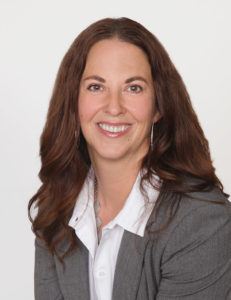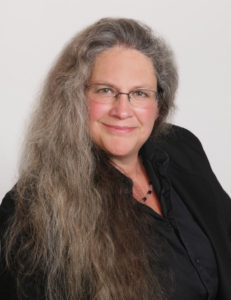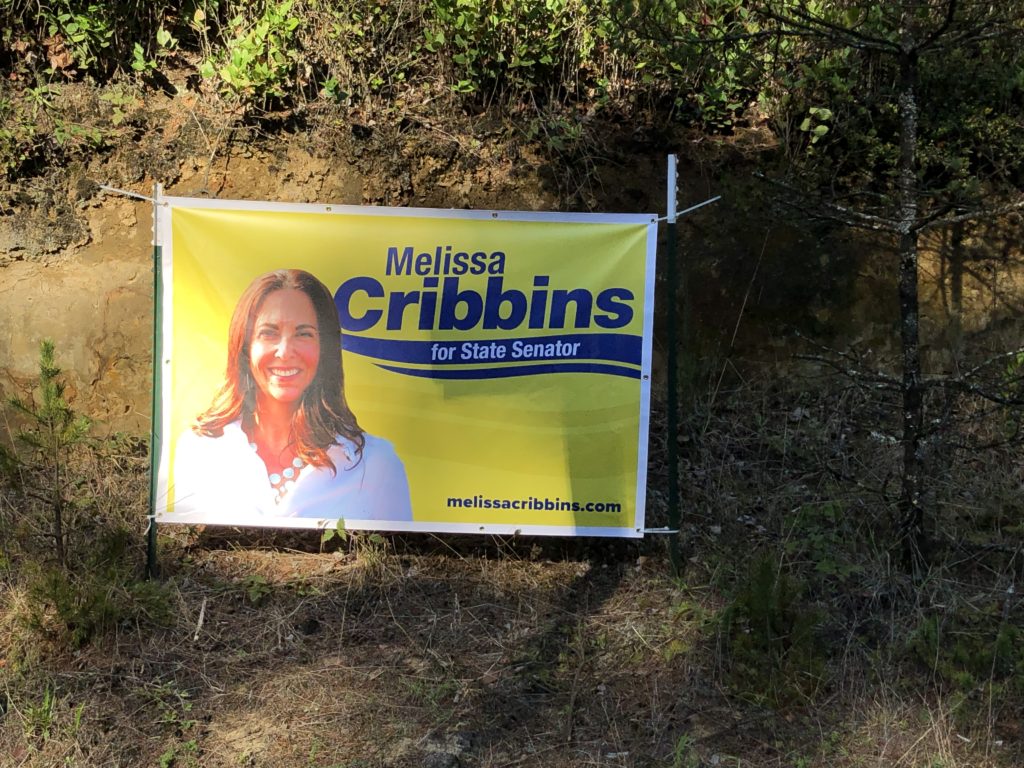

By DANA TIMS/YachatsNews.com
The only Oregon State Senate district that encompasses solely the coast has burst into prominence as one of the most-watched legislative races in the 2020 general election.
The District 5 race pits Dick Anderson, the two-time Republican mayor of Lincoln City, against Democratic two-term Coos County Commissioner Melissa Cribbins.

Shauleen Higgins, a Lakeside City Councilor nominated by the Pacific Green Party, is also running.
The high-profile contest is attracting big campaign contributions for both candidates. In large part, that’s because the race has taken on statewide significance both for Democrats, who want to maintain their 18-12 voting supermajority in the upper chamber, and for Republicans, who think they have an opportunity to cut into that margin.

“This race is up for grabs,” said longtime Oregon political analyst Jim Moore, a professor at Pacific University. “Both sides correctly sense that an awful lot is riding on the outcome.”
The district, geographically, is one of the largest in the state. It extends from just north of Tillamook to south of North Bend and covers all of Lincoln County.
The respective candidates’ position stands are split largely along predictable party lines.
Anderson, a retired financial industry executive, opposes all new taxes, supports providing incentives to private schools and claims on his website that Cribbins is “supported by radicals and Portland politicians.”
Cribbins, a Coos Bay attorney with experience in the drinking-water industry, says she is committed to fighting for workers’ rights, supporting public education and expanding “reproductive rights for all.”
As for Anderson’s jab that she is supported by “radicals,” Cribbins says, “I can’t say I’m surprised, but I continue to be disappointed. I would call on my opponent to elevate the dialogue in this race and talk about the issues.”
Both support the controversial Jordan Cove liquid natural gas project, which is vehemently opposed by Higgins.

Coronavirus puts crimp in campaigning
Where Anderson and Cribbins also agree is that campaigning during a global health pandemic has upended any semblance of a typical political contest.
The need to implement anti-Covid precautions have eliminated the door knocking, indoor rallies and hosted coffees that both candidates have relied on in the past to get their messages out.
Cribbins, 48, has responded by relying on postcards, telephone banks, television and radio ads, and her website to reach voters.
“It’s been really disappointing that we can’t go door-to-door, because that’s where you really get to engage with voters,” she said. “Either way, we are doing everything we can to make sure that every single person votes.”

Anderson, 70, is also making myriad phone calls, but has also hired what he calls a “chief strategist” from Prineville to help craft a bigger online and social media presence.
“This has all certainly been different from other campaigns,” he said. “As a mayor, I do best in small-group coffees, but I’m confident we are doing everything we can to get our message out.”
One thing Anderson hopes to avoid is the razor-thin defeat he suffered in 2016, when he unsuccessfully challenged then-incumbent Democrat Arnie Roblan for the District 5 seat. With Libertarian candidate Dan Souza capturing just over 4 percent of the total, Anderson fell 349 votes shy of unseating Roblan.
Political observers concluded that Souza siphoned off more than enough votes to ensure Roblan’s win.
Now, with Roblan deciding to retire, Anderson hopes that Higgins’ Green Party presence on the ballot this year might help reverse the 2016 outcome.
Anderson said his own internal polling shows that Higgins currently has 3 percent of voters in her corner, with most of those coming at Cribbins’ expense.
“In what could be a real close race, I’m glad she’s in there,” he said. “I hope she gets louder.”
Of Higgins’ candidacy, Cribbins said, “I don’t take any opponent lightly. I hope that voters are looking carefully at who they vote for.”

Open senate seat draws big money
With only weeks to go before the Nov. 3 general election, the race’s importance is underscored by the significant amounts of money pouring in to both campaigns.
Before it’s over, both sides could top a total of $2 million in spending for a seat that pays $31,200 per year.
Anderson is leading so far, having raised $588,000 as of Oct. 15, according to Oregon Secretary of State finance records. Much of that is from timber companies and other business interests.
His top individual donors include $125,000 from The Leadership Fund, the campaign arm of Oregon Senate Republicans; $37,400 from Encouraging the Walking Senators PAC; and, contributions of at least $20,000 or more from timber companies Pape Group, South Coast Lumber, Roseburg Forest Products and Swanson Group.

Cribbins, as of the same date, has raised $508,000, in large part due to contributions from unions and workers’ groups.
Her top donors include nearly $70,000 in in-kind contributions from the Senate Democratic Leadership Fund; $25,000 from the Oregon Trial Lawyers Association PAC; $26,000 from Friends of Lee Beyer; and, $17,870 from Oregon Laborers PAC. The Democratic Party of Oregon has also been mailing fliers to registered voters attacking Anderson and parts of his record as Lincoln City mayor.
“Combined, that’s a lot of money, particularly for a rural area,” said Dick Hughes, a long-time Salem-based political writer. “But it certainly underscores just how competitive this race is.”
Overshadowing all other position stands, he added, is the pandemic and the economic collapse that occurred because of it. While the shuttering of stores and restaurants has inflicted damage across the state, the coast’s heavy reliance on tourism and the dollars it generates means it has been hit as hard, or harder, than any other region in the state.
“A real key to this race is who voters think can provide the strongest leadership in the face of all that hardship,” Hughes said. “And, ultimately, whoever is elected will have influence in either eroding the Democratic supermajority in the Senate, or consolidating it.”
The winner will also play a role in reshaping the bipartisan, seven-member Coastal Caucus, which is made up of three Senate seats and four House seats held by those representing Oregon’s coastal districts. Three of those seats are open and are being contested in this election.
“That’s a lot of transition,” said Rep. Dave Gomberg, D-Otis, whose House District 10 seat represents Yachats north to Tillamook. “But we’ll still be working together to get a lot of good things done for the coast.”
And, their issues are …
Undecided voters are likely taking a look at stands on other issues.
For Cribbins those include:
Access to broadband cable: “If Covid has taught us anything, it’s the importance of broadband. If we can strengthen that, we’ll find that people who now realize they can work from anywhere can move to this beautiful part of Oregon and do that from the coast. This is a tremendous economic development opportunity.”
Increase tourism: “Coos County manages 15,000 acres of forestland, where we have, without using taxpayer dollars, built mountain biking trails that are bringing in considerable amounts of money to our local economy. I think we can look at these opportunities throughout the district.”
Bipartisanship. “I’ve been a Coos County commissioner for eight years. During that time, I have worked with two Republicans and we do a great job. We don’t always agree, but we’ve established a culture of respect. We should be a model for how state legislators should work.”
For Anderson those include:
Freezing property taxes for seniors: “Prices are escalating and seniors are getting taxed out of their houses. I’d like to keep seniors at the coast and not forced to sell and move just to survive.”
Expanding credits for child care. “It’s really tough right now to find people to deliver child care. I think we could also address requirements for building sizes that would let us, in emergencies, to use empty buildings like churches, schools and community centers for providing child care.”
Term limits. “I’m a fan of campaign finance and term limits. It’s hard to raise $800,000, as I did four years ago, to go against an incumbent. As for term limits? Eight years? 12 years? Whatever we decide, that’s plenty.”
- Dana Tims is an Oregon freelance writer who contributes regularly to YachatsNews.com. He can be reached at DanaTims24@gmail.com


